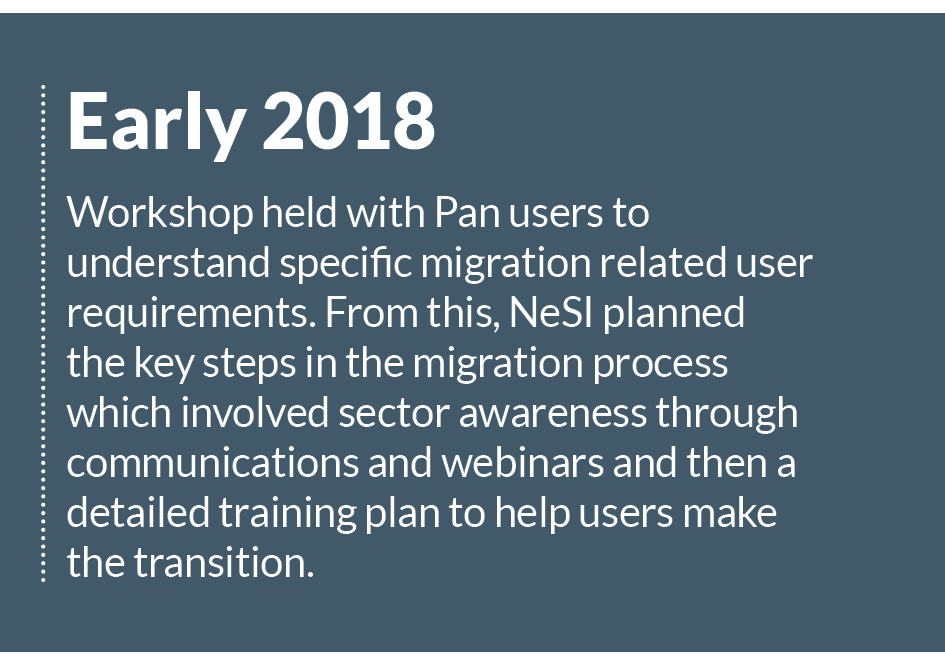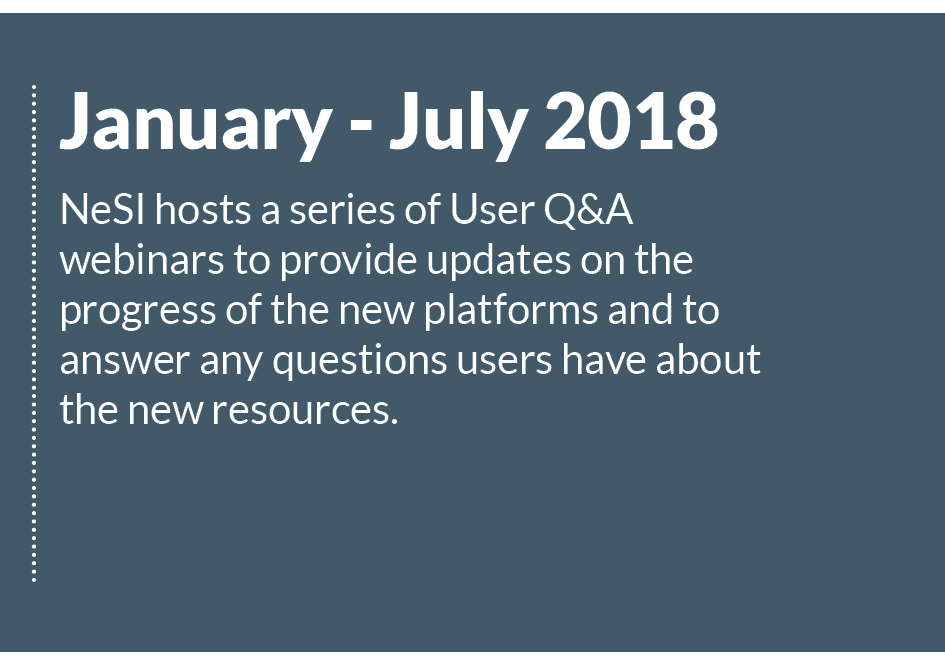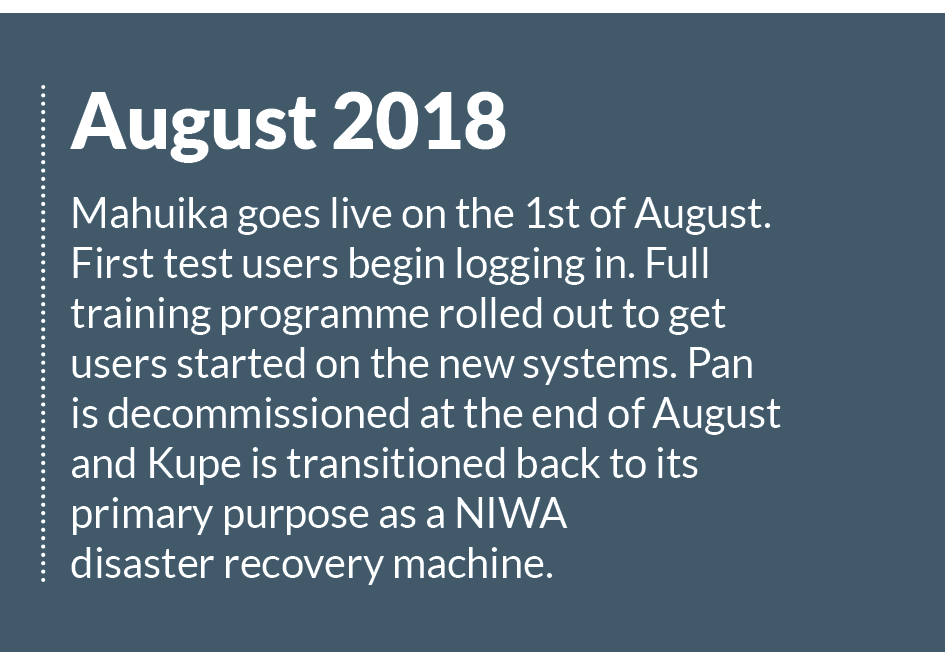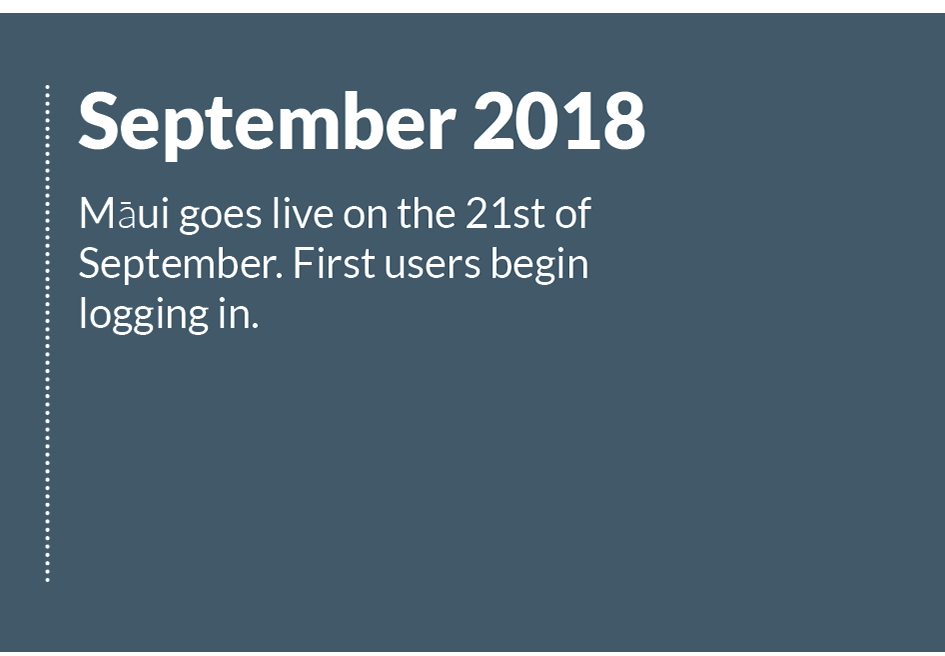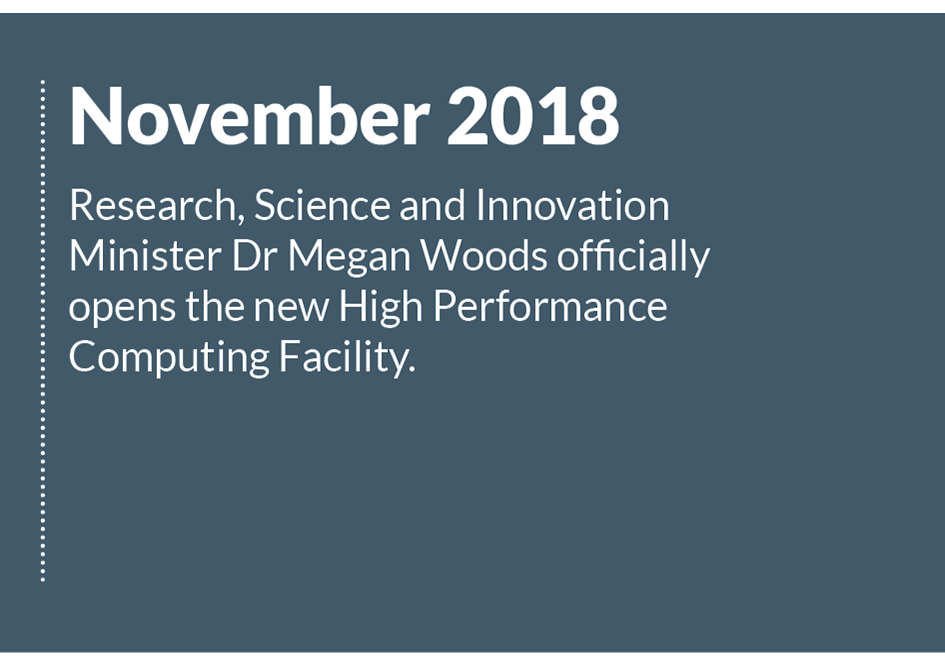High performance computing and analytics
Driven by the needs of researchers for high-performance productivity, NeSI integrates advanced digital capabilities into a range of eResearch services, and ensures advanced computational research projects are backed by the power necessary to make them a reality.
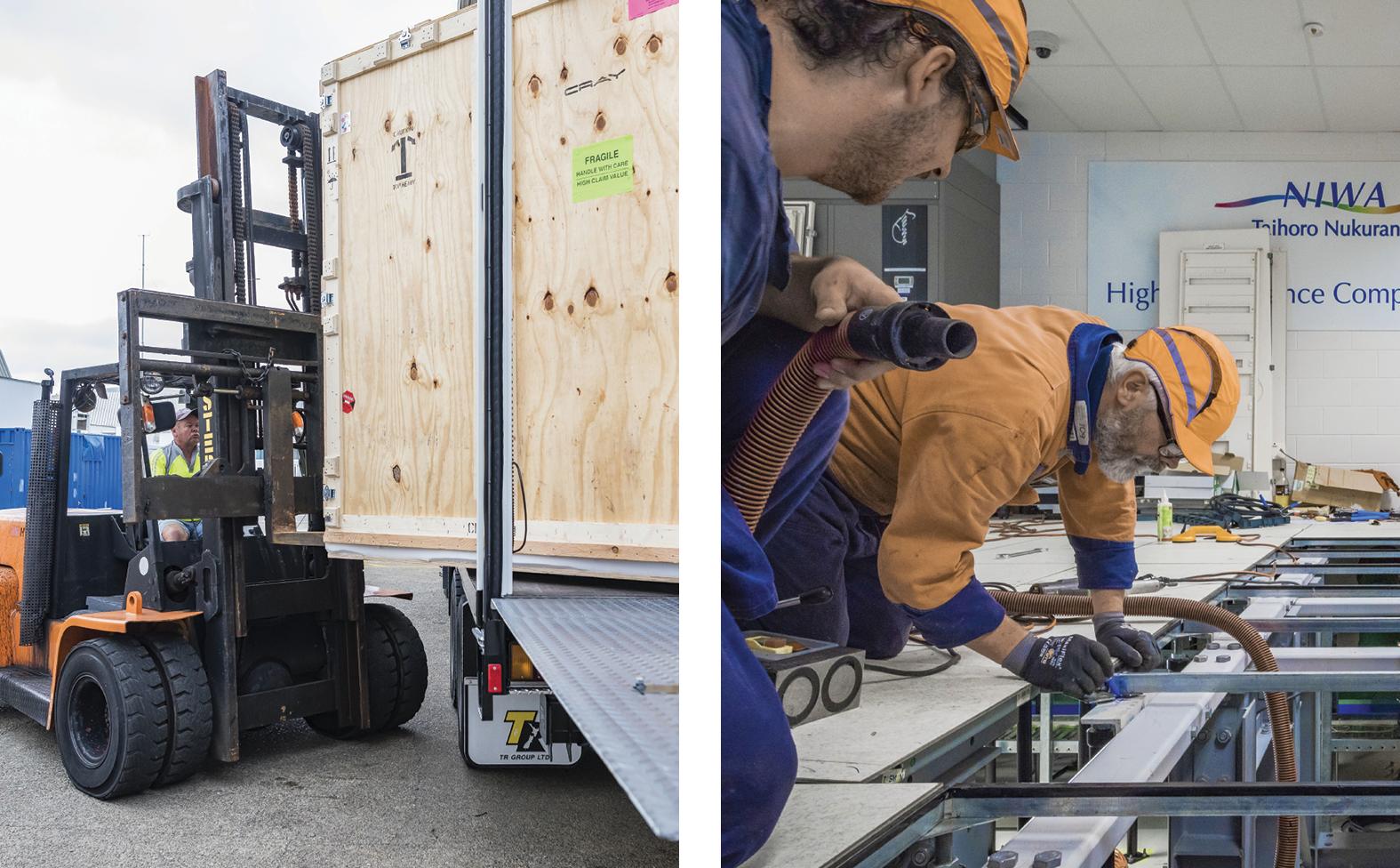
NeSI lifts New Zealand researchers’ ability to tackle large, complex problems, and enables computational and data-intensive research to be carried out much faster and at greater scale, across all domains. NeSI’s facilities are the country’s most powerful scientific computers.
Transition to new platforms
A major focus for 2018 was seamlessly migrating users from Pan and Kupe across to our new machines Mahuika and Māui. Moving Pan users to Mahuika was the primary focus as FitzRoy users had already migrated across to the NIWA platform Kupe, which operated in similar ways to Māui. The whole process of transitioning to these new platforms required a massive team effort, from early platform design with key stakeholders through to the tender process and then the final project delivery through NIWA, Cray, IBM and NeSI. By the end of 2018, the new infrastructure was in operation and performing well.
Making it easier to start
Another focus area in 2018 was to improve our induction processes and support for new users. We worked towards this goal in a number of key areas, such as:
- introducing a new level of basic support within our support team, which included running ‘Introduction to HPC’ sessions in-person in Auckland and via video conference nationally
- improving our support site with new and updated documentation (in line with the new platforms)
- launching a new and improved project application form through NeSI’s new user portal, my.nesi.org.nz
As part of the transition to the new platform, NeSI has been integrating enhanced cybersecurity procedures to protect our users and their data. These new security requirements saw NeSI introduce multi-factor authentication on the new platforms. In some cases, this made the registration and logging in process more difficult for users outside of NIWA’s firewall, however the team worked to assist users and make the transition to these new processes as smooth as possible.
In an effort to fully understand the scope of any issues that arose (or still existed) from users’ migration onto the new platforms, NeSI surveyed all users in December. This survey identified issues in the logging in process, lack of working data transfer service, and the ability to find the right documentation. This feedback was documented, a follow up plan initiated for any issues still outstanding, and has helped NeSI prioritise its service improvements in early 2019.
Development of new capabilities
NeSI’s new platforms enable us to lift our service capabilities to researchers in areas related to data management, research platforms, virtual labs, and security. In terms of data management, we will be able to provide long-term storage for research programmes and data resilience through disaster recovery replication. The new platforms also provide new data analytics tools and the ability to provision visualisation capabilities along with cloud integration.
Virtual labs will provide dedicated and persistent interactive environments for different projects or domains. Genomics Aotearoa have provided some initial requirements for the first iteration of virtual labs due for release in early 2019. In 2018, we also installed the Cray Urika-XC big data analytics tools on Māui which will provide new problem solving methods for researchers. NeSI’s recruitment of new staff with expertise in cloud computing, genomics, and engineering domain applications has supported the introduction of these new services.
Transition to new infrastructure
